- Words Ray Sang
- Photography George Hodson
- Assistant Annie Watts
Vic opens up about the inspiration behind his latest mixtape, 'Lifestyle: Glory Days Part 3', as Notion goes behind the scenes at his exclusive release party.
At times the single separator between those who succeed in the face of adversity and those who fall by the wayside is the admirable quality of being able find beauty amidst the chaos. Shaping pain and moments of deep introspection into tools of inspiration for the next generation, Cameroon-born South London raised Vic Santoro is on a mission to demonstrate that anything is possible with the right mindset. Making a full 180 from a noticeably turbulent beginning, the rapper is now firmly rooted in the entertainment sphere as an accomplished actor, public speaker and artist using his words as form of therapy.
Channeling this conscious energy, the final installment of his three-mixtape series, “Lifestyle: Glory Days Part 3” explores themes of growth, manhood, and gratitude meandering through a flurry of emotions. Guided by his faith and commitment to showcasing the most authentic version of himself Santoro’s tracks are as healing as they are relatable, inspired by likes of Jay Z, Nipsey Hussle, and the Hip-Hop greats that came before him.


With sentiments of encouragement and learning to trust the process dotted across the project, it perhaps comes as no surprise that the rapper’s aims with his art extend far beyond himself which is where our conversation began.
Dive into Vic Santoro’s world as Notion goes behind the scenes of the rapper’s exclusive mixtape release party in London.
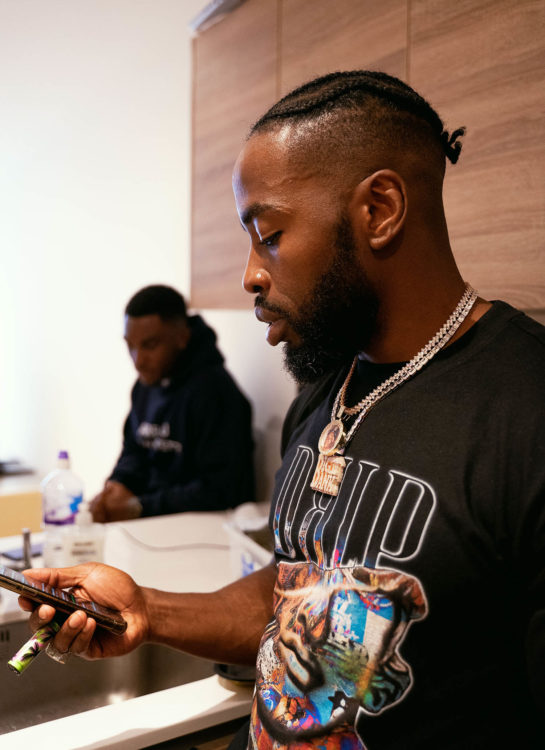
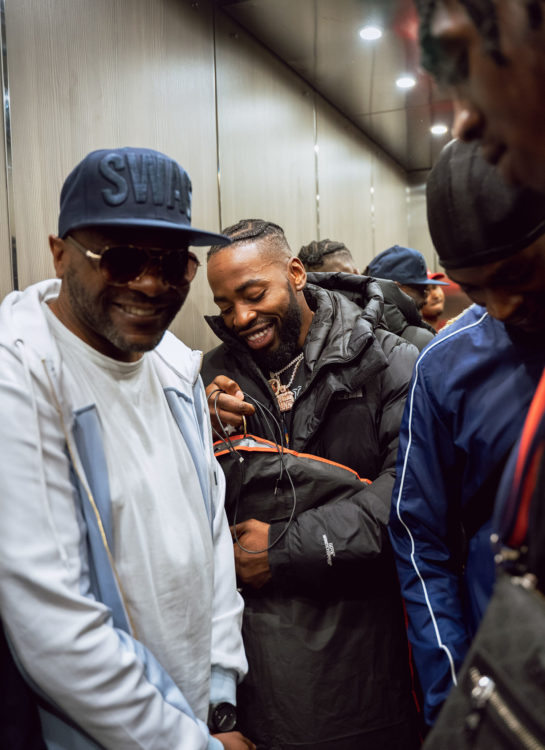
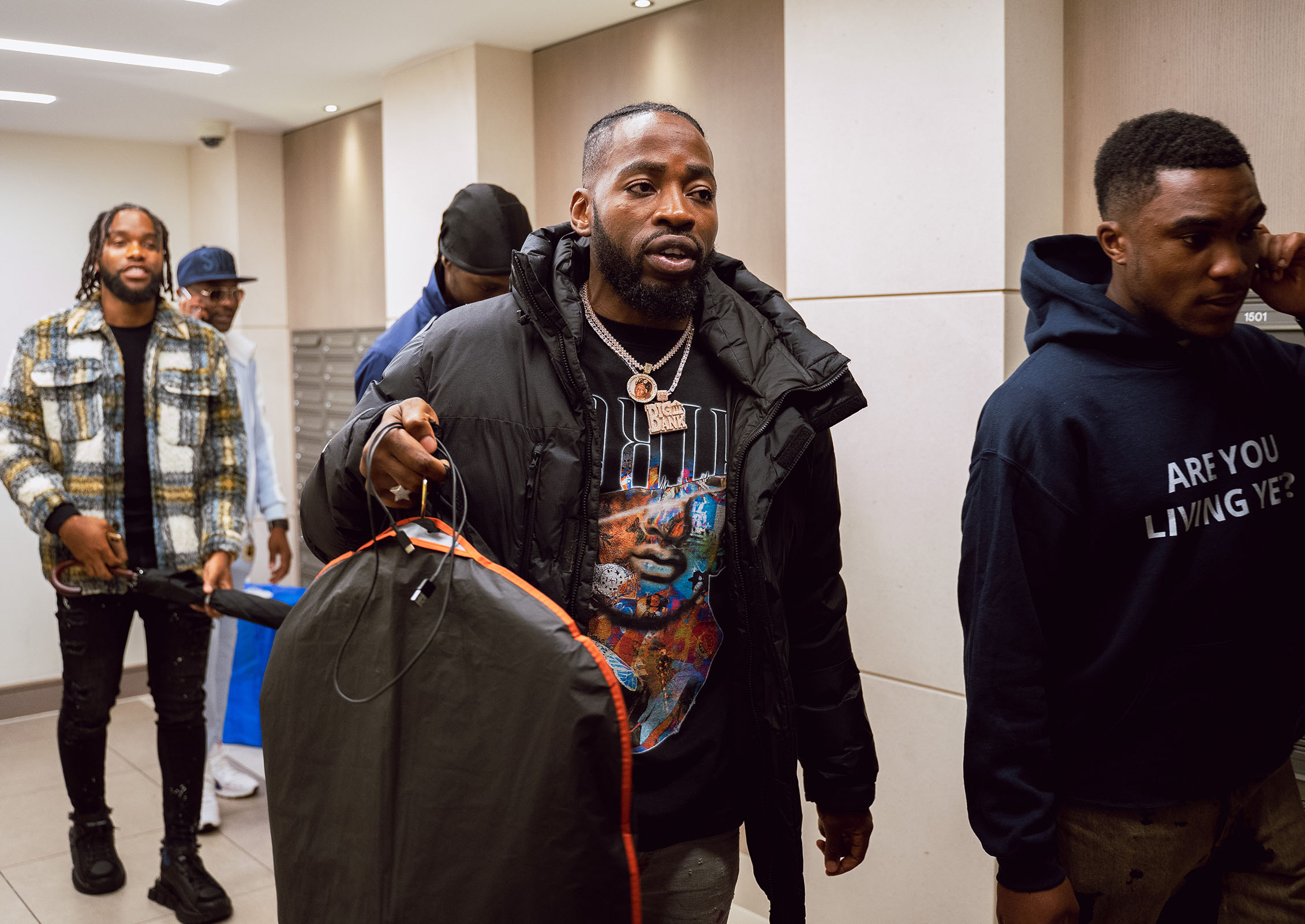
Your experiences have undoubtedly influenced your lyrical content. But what I want to know is how they have shaped your approach to music. From your creative process to the final product we see on stage?
I think the experiences have sort of helped to cultivate the topic or the content. However, in terms of delivering it, I’m a lot more conscious of making sure it’s delivered right. So I don’t get caught up in, “Oh, my gosh, that’s a sick line” and then neglect the rest of the song. I think, ideally, it’s about me being able to translate what I’m saying properly, rather than just putting witty words together. And it’s a feeling thing. I want you to feel it when I say it.
So for you, would you say that the message is more important than the quirky one-liners?
Yeah, the message is very important. And again, it has to be the truth. So, I couldn’t even make it up. I couldn’t tell the story inaccurately, so I have to say it accurately and promote it from a vulnerable standpoint even if it makes me feel uncomfortable. I need the message to be understood for what it is, rather than just “oh my gosh, that’s a sick song.”
Are you comfortable with the feeling of being uncomfortable?
Yeah, I think that for any creative, that is where you live. You live in a place where you’re uncomfortable and that vulnerability is what comes out through your art. I don’t even think I know what comfortable is. But yeah, if I was too comfortable, I’d probably be unable to tune into some of the spaces I go into.
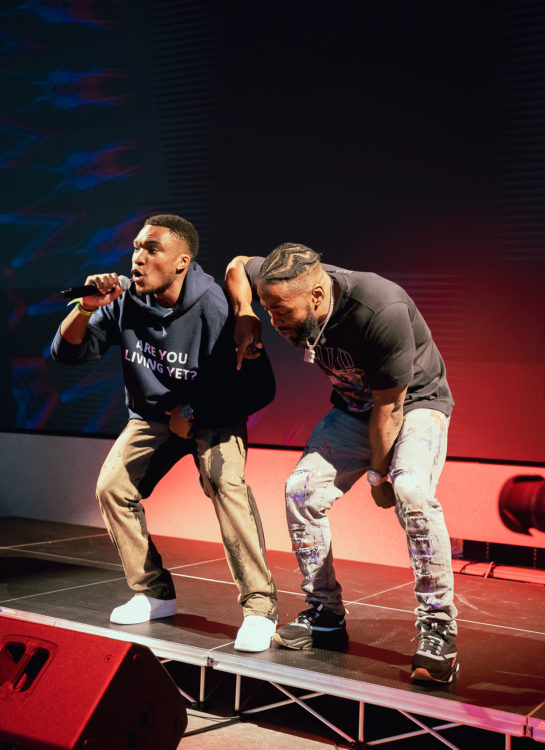


Speaking of the spaces that you go into, you’ve found success with acting and in public speaking but consider music to be your first love. What keeps you coming back to it?
Music being the catalyst is the drive that pushes everything else I think. Because I had the early Channel U stuff, there’s an assumption from the musical audience that I already did the music thing. But it’s like, no, I didn’t. I released one song and I went away. Yeah, it was on TV, but I was not around for 10 years after that, so this is actually my first opportunity to engage a musical audience properly. And I always will come back to it because that’s what drives everything else. That’s what every else sort of stems from.
I’d be interested to kind of hear more about how public speaking helps you with your music.
Okay, so that’s interesting. Public speaking helped me articulate the music a lot better. When you’re going to deliver a talk and stuff like that, there are different rules of delivery that you go by and that’s kind of helped my music. I’m very clear, and concise and I get to the point. I can emphasise an emotion without taking you away from the whole feeling. And what I mean by that is, I can go to a public speaking event and talk about the pain but still make you feel elated with the way I was speaking about it because I’m speaking about it from a survival standpoint. So that’s what I’m able to do with the music. Whereas I feel like before the vulnerability used to kind of block me from layering it the right way. For some of the types of songs I’d get caught up in just one channel, stay in it and not know how to get myself out of that because music is therapy for me. So public speaking has helped me to articulate myself a lot better lyrically.




Music as therapy. Can you break that down a little more?
I struggled to express myself like talking to people about emotions and stuff like that. So I find it easier to communicate my feelings in music. I don’t know in a way, it’s going to sound cold, but I kind of look at it like people don’t care. I don’t have a motivation to talk to those people because I just feel like no one cares to figure it out. That’s how I was raised, you know, toughen up, keep your head up, keep moving. So, I find it easier to talk through my music.
Your mixtape series is titled ‘Glory Days’. What do the words glory days actually mean to you?
Literally, the definition of glory days is about a time of being young. When all you cared about is having a shape up and having good trainers…when life was a lot more straightforward, I suppose. And the glory days is what everybody goes through. There is a certain stage in your life in your adolescence where you feel free, before everything gets so serious and you hit adulthood. Glory days is about that freedom. That freedom feeling I was trying to connect to, which I think I’m connected to now. I feel like you go through that twice. You go through the teenage years, and you have that freedom and then there’s a point of your adulthood where you feel that freedom again. I’ve only just got to the point where I’m starting to feel free again. Mentally I feel a bit more relaxed. So that’s what glory days for me is about.
So ‘Glory Days;, “Heal My Soul” I’m kind of sensing some sort of pattern here. Would you consider yourself to be a man of faith?
[Laughs] I am a man of faith. Yeah, definitely. That’s why there’s a lot of referencing of God in my project.
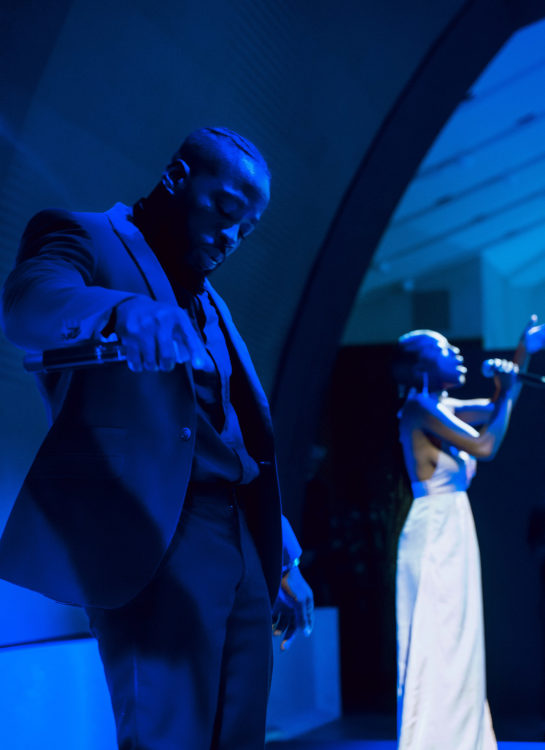

How would you say that’s helped you on your musical journey?
Oh, that’s everything, man. Even with my creative process. I don’t consciously have thoughts of trying to write this stuff because it comes straight from God. It sounds crazy when I say it. When I say this to someone that’s not spiritual, they don’t understand it. Everything I say comes from that. I don’t sit down and think, “Oh, my gosh, I wanted to say this”. I just kind of go into this zone and that’s what comes out at the end of it. I give all glory to God in everything I’m doing. So I think I’m a vessel for his messaging, and I’m just on a mission that he’s put me on, you know.
Your latest EP opens with the track ‘Cigar Talk’ a song that tells the story of your come up. There’s a particular line from it that I want to unpack. “You learn the best lessons when the worst happens”. What would you say was the moment that changed everything for you, and what is it that you learned from that experience?
I think going away, was something that ignited the full process, but being a parent… Coming from the environments we’re coming from you have these expectations of yourself, for how you see yourself in the world as a man, or as a father, or as a son, or whatever. So, I see myself a certain way. And I think having kids or being a parent made me realise that my pride is not matching the vision. It’s like, I know what I can see in the mirror, but the action of the person is not actually matching the actions of this thing that I can see. So, the biggest lesson there, for me, was about ultimately being the best version of myself. And I realised that once I’m able to do that it trickles into other areas of my life and just helps things come together. Once I started tapping into that, that was like the most valuable lesson I learned, like, be the best version of yourself in every area don’t pick and choose.

You’re often talking about achieving goals and inspiring others to do the same. Now that the EP is officially out and you’ve ticked that off your list, what are some other goals that you’re hoping to achieve?
I’m definitely going to pull out a deluxe. The village has demanded it. I’m going to announce a show shortly for October. I feel like I’ve not had the opportunity yet to get my supporters in a room. I’ve got a really small team as well. They are really all sick with everything they’re doing to put me in this position. This show is more about being able to celebrate my supporters and my team and just to have a whole thing of it, you know. I mean, we had a show Samsung the other day, but that was more of a launch. So the next step is to get a show. Get yourself and everyone in there and have some good vibes in the room.
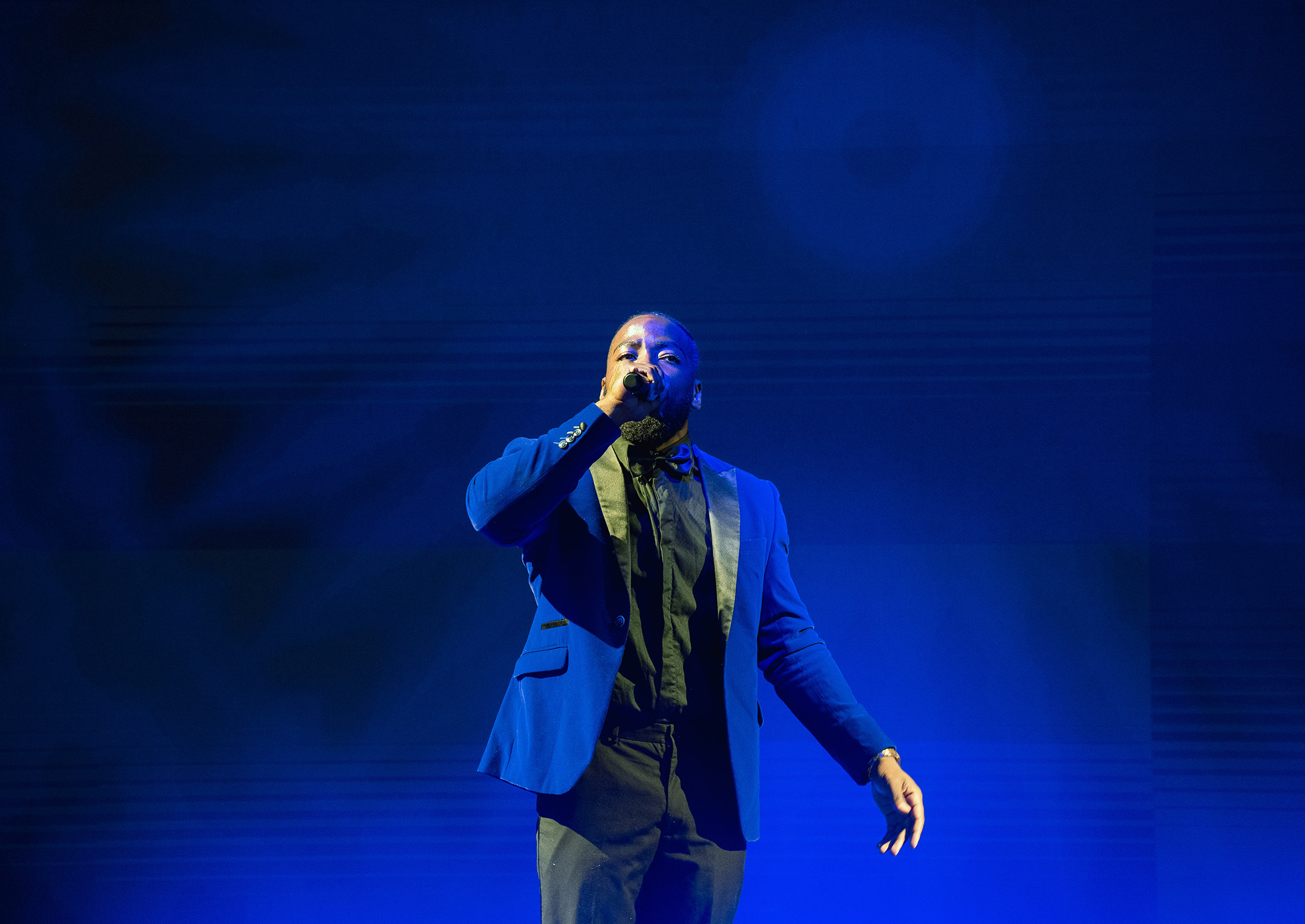
Speaking of, what was that like for you, the experience of having your launch. What was going through your mind at the time?
It was such a blur. I’m still watching back the footage to figure out what happened! It was such a blessing. The team worked so hard. And I felt overwhelmed even way before the show because just seeing what Kat was doing just what everybody was doing to try and make it come together. It was just overwhelming because where I’m from that’s not really the norm. But the whole thing, I’m mean Samsung… This is a mixtape not even an album and we’re doing a launch at Samsung. That’s why I say this is God’s plan. It was an amazing, amazing experience. It was successful and on top of that, as a quote on quote, rapper, corporate venues don’t allow us to come in there and do events. Even hearing the feedback from Samsung. This was the first rap event [they’ve held] in there and they were like, “That was amazing”. That makes me feel happy that my team were able to put that together was able to represent and hopefully, it helps someone else that’s trying to get show in there. That’s my thing. There is you know how it benefits me, but for me, it’s more about how it benefits all of us.

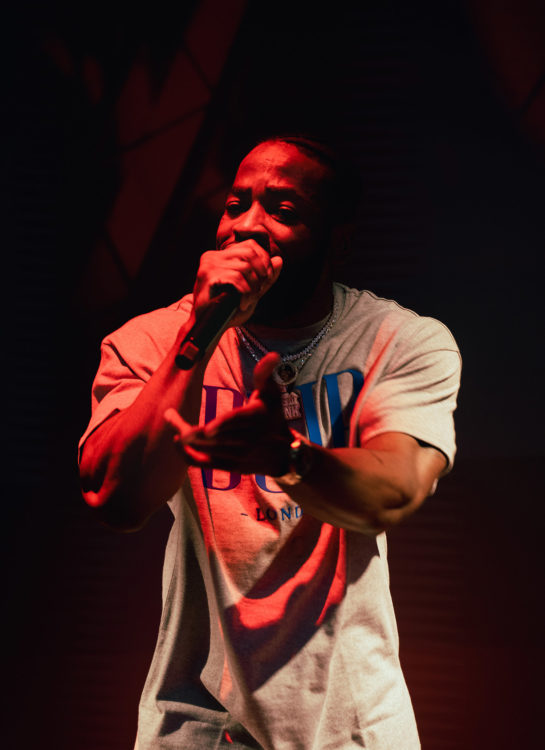
Something that you’ve previously mentioned, was the difficulty adjusting to the new digitised musical landscape when you came back to the music scene. How do you think the internet has impacted music for you at this stage in your career?
It’s still a learning curve, man. I’m really still trying to figure out how this whole thing works because I’m a live performer. I can go into a venue where no one’s heard a song of mine and I’m confident I can go on stage and rock the mic and bring the energy. I come from that era of music. The internet, I find it really difficult because sometimes it affects how you gauge your progress. If you haven’t got your eyes in all the other areas, and you’re maybe just looking at YouTube, you could feel like oh my gosh this is the only indicator, my of my stuff must not be doing that great. So it can mess with your mental health. Now I have a general understanding that there are a bunch of different areas that the wheel spinning in, you can’t look at one area. I’m an in-person, person, but I’m practising and I’m learning. I’m trying to engage and adapt to this new age.
Will we be seeing you do any TikTok dances?
Nah Nah. [Laughs] I mean, I’m African so I like dancing and if there was something that made sense then [yeah]. I’m trying to get my son to do a TikTok dance to one of my songs.
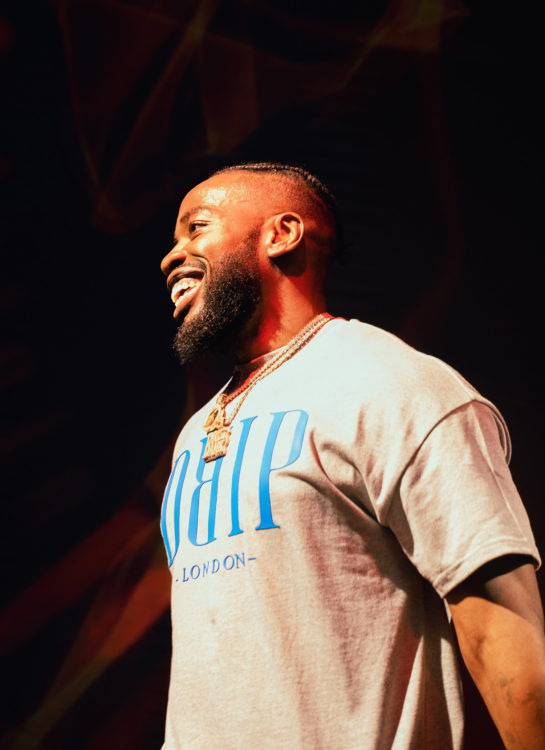
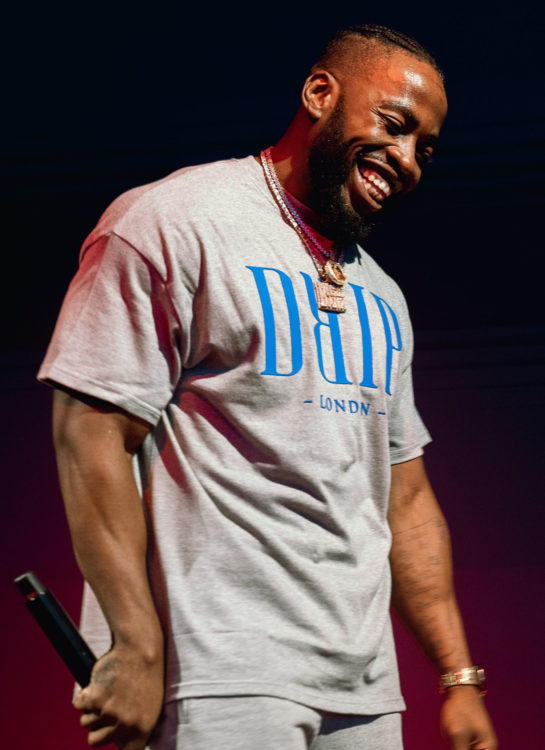
You’ve just mentioned that you’re more of a live person so how have you found Covid and not being able to perform because that’s clearly a huge part of who you are as an artist?
Yeah, it’s been hard man. Not being able to perform and not being able to do public speaking because that’s my thing. But we’ve utilised our time quite well. We’ve been working through COVID. What it’s done is allowed me to put the steps together for all the stuff you’re seeing now. For example, “Glory Days” was recorded last year. So, we’ve had to build it to this point where we can release it in the type of format and the way we’re doing it. Now I’m just looking forward to being back outside. At least I’m prepared to be back outside properly as an artist. If I didn’t have that time, we’d be trying to work to get stuff together now whereas now we’ve already got everything and were just picking how we play our cards.
I hear that you’re working on a documentary what can you tell us about that?
Yeah, we’re working on a documentary, we’ve been doing it since last year. The idea was to capture the whole process because for me it’s a lot more about the translation than just putting out the art. With anything that’s created, sometimes it takes for people to see what went into it for them to really connect to it and realise, oh gosh, like this is actually a real thing. And I think with me, there can be this misunderstanding that because I seem multifaceted that I’m just doing stuff on a whim. It doesn’t work like that. There’s a whole process. It will be good to show that human side of myself. Yeah, guys, I appreciate the compliment, but I don’t just wake up and have these things happen, I’m actually putting the work in. So the documentary will show that and it will link a lot of parts from my actual story and different elements. It’s probably not going to be a YouTube release I can tell you that much. It will probably be like an Amazon Prime or Netflix or something like that.
Who would you most like to collaborate with right now?
Little Simz.
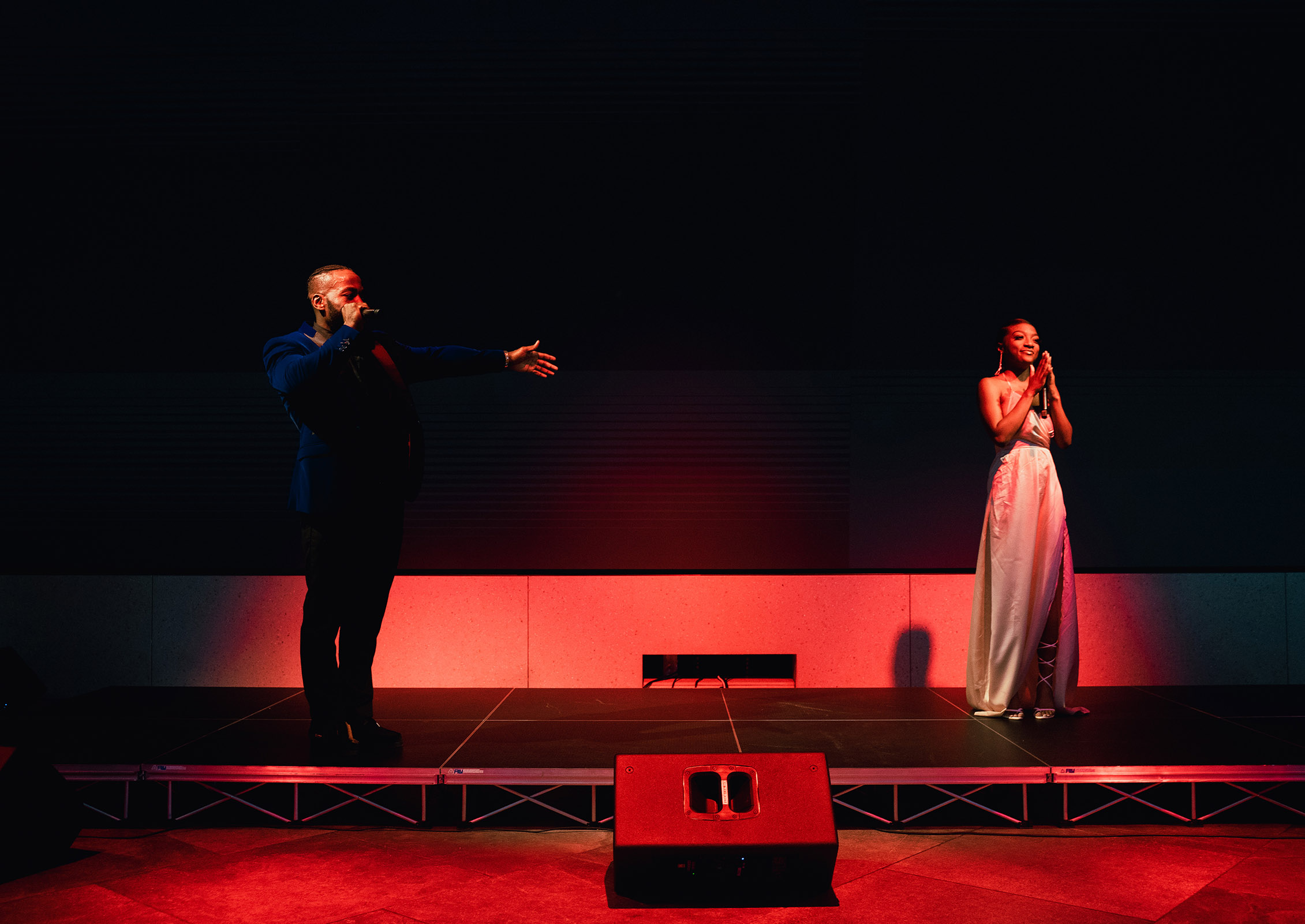
And finally, Vic, what is next for you?
What is next for me? ‘Glory Days Deluxe’, a semi-headline show and a TV series coming soon. I can’t say much about that either but that’s in the works as well.


